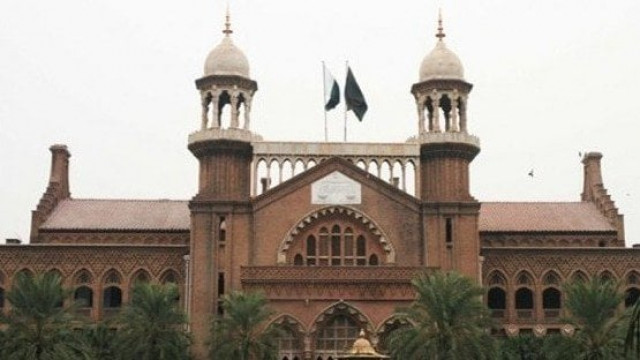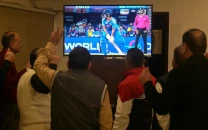Judges versus lawyers: lower courts strike
The situation at the sessions courts of Lahore reached a fevered pitch as protesting lawyers turned violent against judges.

Lawyers going to the courts for hearings were met with locked doors and all cases have come to a standstill. The strike is expected to continue until the Sessions Judge Zawar Ahmed Sheikh is allowed to sit in the court.
On Monday, the Lahore High Court acting Chief Justice Ijaz Ahmed Chaudhry announced that the accused judge will not be transferred. He believes the lawyers are at fault.
Updated from the print edition below.
Irate lawyers turn violent against judges
The situation at the sessions courts of Lahore reached a fevered pitch on Monday as protesting lawyers turned violent against judges, pelting them with glass bottles and shoes.
In the aftermath of the unrest, at least 120 judicial officers including civil judges and additional sessions judges announced that they would go on a 15-day leave to protest against the violent behaviour of the lawyers. This decision, however, was taken back after negotiations and pacification efforts during a meeting between Lahore High Court judge Ejaz Ahmed and the lawyers’ leaders.
Lawyers the Lahore Bar Association were protesting on Monday against the ‘obnoxious’ behaviour of sessions judge Zawar Ahmed Sheikh. Demanding Sheikh’s transfer for not following the directives of president of the bar Sajid Bashir, the lawyers had reportedly warned the judge to not come to the courts. However, accompanied by fellow judges, Sheikh did attend on Monday.
Seeing him at the courts with the support of other judicial staff, enraged the lawyers, who then resorted to violence, which included locking the courts, pelting glass bottles at the judges, hitting the judges’ vehicles with shoes and also threatening them with physical intimidation.
Police were called in to maintain order at the courts, which closed down following the protest. The judges were rescued by the police after a discussion with the lawyers.
In an instant response, at least 120 judicial officers including civil judges and additional sessions judges announced to go on a 15-day leave in protest against the violence. However, the tension was defused later in the evening after a dialogue between a delegation of the Lahore Bar and Justice Ijaz Ahmad Chaudhry of the Lahore High Court.
The Lahore High Court has also cancelled the leaves of judicial officers, asking them to continue with routine work. Sheikh, however, has been asked to work at the Lahore High Court premises for a few days instead of his own court room. President of the bar Sajid Bashir too has called off the lawyers’ strike, directing them to appear before the court.
Published in The Express Tribune, July 13th, 2010.


















COMMENTS
Comments are moderated and generally will be posted if they are on-topic and not abusive.
For more information, please see our Comments FAQ